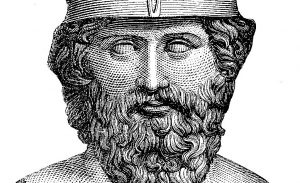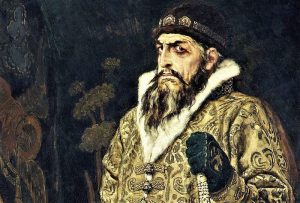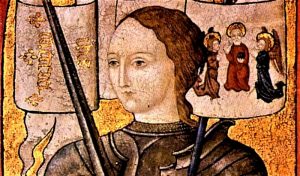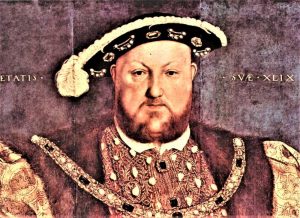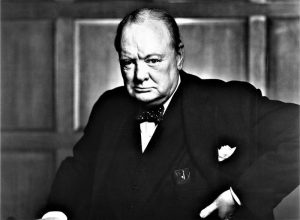Niccolò Machiavelli
Niccolò Machiavelli was an important Italian political thinker, Florentine writer and statesman and an important historical figure who is best remembered for his masterpiece entitled The Prince, which was written in 1513, but which was published after his death in 1532. Machiavelli is considered one of the first early analysts of political power.
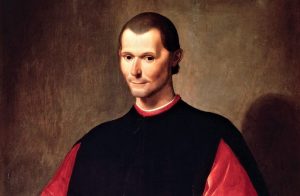
Personal information
- Born date: 03/05/1469
- Where he was born: Florence, Italy
- When he died: 21/06/1527
- Where did he die: Florence, Italy
Who was Niccolò Machiavelli?
He was a historian, writer, philosopher and Italian politician who worked in Florence. Writer and author of the work "The Prince", that captured his ideas about an ideal state and about the different means to achieve it.
Niccolò Machiavelli biography
Niccolò Machiavelli was born on May 3, 1469, in Florence, a city located in Italy. His father, Bernardo, belonged to an impoverished branch of an influential Florentine family. As a thinker, he was a member of a school of Florentine intellectuals concerned with political and historical problems. His important writings were published after 1512 when he was accused of conspiracy in 1513. The Medici family had returned to power and Machiavelli, who had served as secretary in the previous government, was dismissed. He was under suspicion of conspiring against the Medici and was arrested, tortured and exiled. Machiavelli found himself unemployed after years of patriotic service and spent most of his remaining years in the production of his main works.
He gained some fame as a historian and playwright, but with The Prince, he hoped to regain political favor as the book explained how to obtain, maintain and centralize power. In 1519, he made peace with the Medici and was assigned various duties, including writing a history of Florence. When the Medici were removed from their positions in 1527, Machiavelli wanted a new government position, but the Republican government distrusted him because of his previous association with the Medici.
Death
Niccolò Machiavelli died on 21 June 1527. He had been accused of having been involved in a coup d’état against Medici. After being tortured, he was released. Sometime later, he was accused again of betrayal in favor of the Medici for which he was captured again and sentenced. He died forgotten by the people.
Niccolò Machiavelli’s thought
Machiavelli is considered to be one of the most important political theorists of the Renaissance, because through him, the path to political modernity and social restructuring is opened. One of his most important thoughts was that “if a person wishes to find a state and create its laws, he must begin by assuming that all men are perverse and that they are prepared to show their nature, as long as they find the occasion for it”. He was a sympathizer of the republic because he thought that all communities had two spirits: the people and those who wanted to govern the people. He was always looking for a way to bring the issue of work forward. His ideas have provoked many contradictory ideas, some regarded him as the father of cruelty and tyranny, while others regarded him as a modern politician. In conclusion, his thinking is based on virtue and fortune.
Niccolò Machiavelli’s contributions
Machiavelli inherited to us a series of experiences, rules and behavioral patterns that must be followed in order to govern properly. Among them we can mention the following:
- The best way to govern a country is through the Republic.
- He gave great teachings regarding public policy.
- He taught which were the main elements to carry out policy analysis.
- He is considered as the creator of modern political thought.
Theory
His theory says that when cities are used to living under a prince, and he leaves, the lineage becomes vacant. Since the inhabitants are accustomed to follow rules and laws, when the prince leaves, they are unprotected, any other prince could arrive, conquer them and retain them. In his theory he states that aristocratic states are much easier to conquer than republicans, since power in the republican is divided among noble families and it is not at all easy to give power to a foreigner.
Niccolò Machiavelli’s works
Among the most important works of Niccolò Machiavelli we can mention the following:
- Discourse about the Court of Pisa.
- Portrait of the Court of France.
- Speeches on the first decade of Titus Livius.
- Andria, comedy.
- The mandrake, comedy in prose of five acts.
- Castruccio Castracani’s life.
- Florence History.
- The Prince, which is considered his most important work in which he seeks to show that the virtues of the prince should not coincide with those of normal men.
Phrases
Among his most recognized phrases we can mention the following:
- It’s better to do and regret than not to do and regret.
- There cannot be great difficulties when goodwill abounds.
- Weapons should be reserved for the final, where and when other means are not enough.
- In all human things, when closely examined, it is shown that obstacles cannot be removed without others arising from them.
- All well-governed states and all intelligent princes have been careful not to reduce nobility to despair, nor people to discontent.
How to cite this article?
Briceño V., Gabriela. (2019). Niccolò Machiavelli. Recovered on 4 May, 2025, de Euston96: https://www.euston96.com/en/niccolo-machiavelli/



